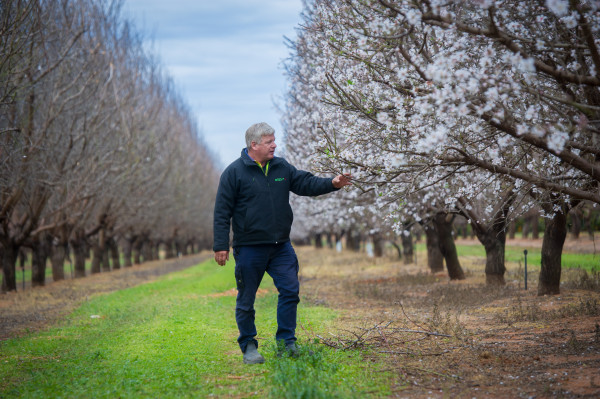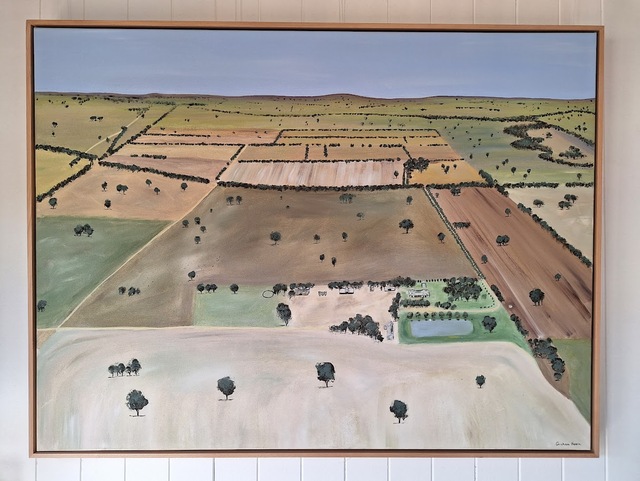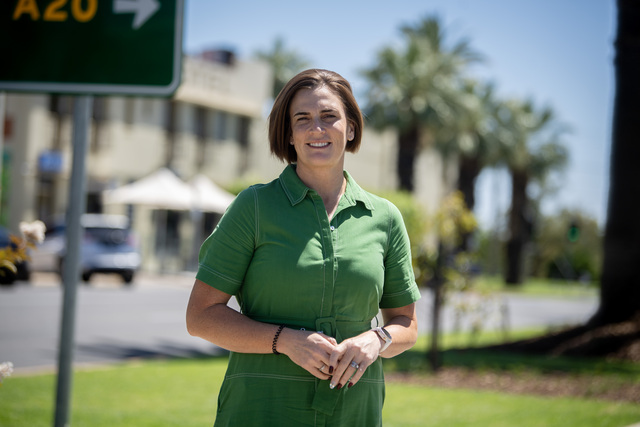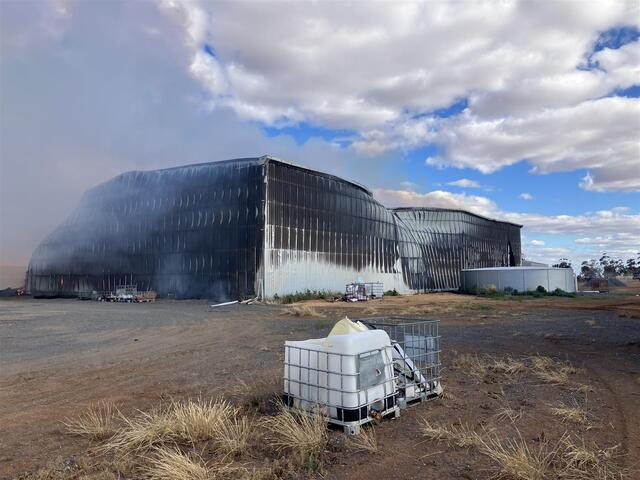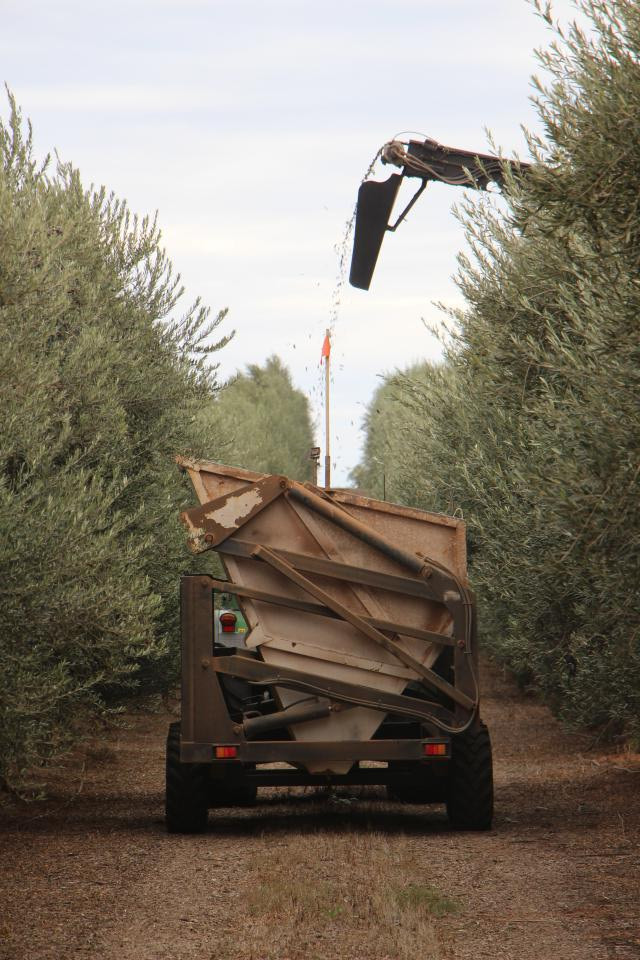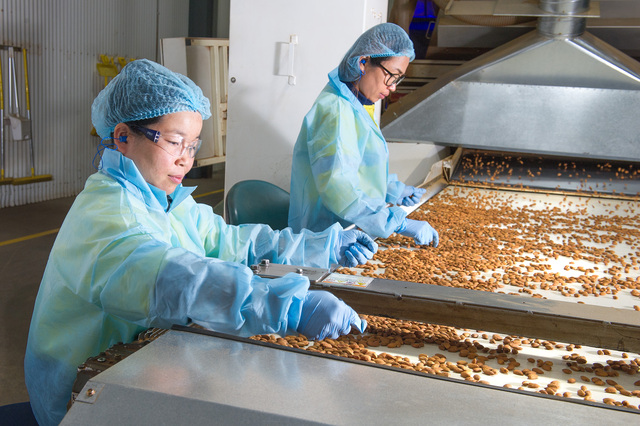The Minter family at Red Cliffs have not relied on one crop – they are farming asparagus, citrus and almonds.
But the rise of Mexican asparagus production to global domination has certainly reshuffled things on this family farm.
For Darren Minter it’s a sad business – his family farm was founded on asparagus almost a century ago.
However, in 1927 when the first plants were going in, no one could have foreseen the Mexicans coming over the horizon to not just take out the Australian industry but also the even bigger production in the US.
Fortunately, in the 1960s and ’70s, his parents Geoff and Elizabeth expanded the portfolio into citrus, and in 1985, with Darren coming back onto the farm, the first almonds started going in.
“Because the first crops were pretty labour intensive, the almonds had a lot of appeal as you could get the job done with machinery,” Darren Minter said. “And as they are counter seasonal with the citrus, dad and I reckoned we could get most of it done ourselves.
“When we first started with the almonds, two thirds of Australian consumption was imported from California, so you could also see the long-term potential.
“However, to justify the cost of the machinery, you really need about 200 acres of almonds, so in 1986-87 we formed the Red Cliffs Almond Growers with seven farms involved to share the costs and make it work for us all.”
Incredibly, that group only shut down two years ago after its members had retired, sold or changed direction.
Running the business today with his wife Anne-Marie and their son Garry, Darren Minter said it looks a lot different to when it was one third asparagus, one third citrus and one third almonds.
And with the plans the Almond Board of Australia, the almond industry’s governing body, has for the future export growth of the business, especially into monster markets such as India and other parts of Asia, it might look a lot different in the next few years as well.
Their first 200 acres of almonds have trees aged between almost 40 years and seven years, so another 200 acres went in last year. They are a couple of years away from production, at which time the first 200 acres will be renovated with newer trees. They will also be renovating their 300 acres of citrus.
“The citrus is productive much longer, they can go 60 years, but almonds are only good for 25-40 years,” Darren Minter said.
“But none of that saves you from weather – our recent run of wet has cost us a small fortune.
“Some of the biggest challenges I see in all agriculture are geopolitics, the international market place with buying practices and so many global government changes to the rules. That’s what sets the agenda today, along with the power and decision making of the supermarket duopoly.
“This year Woolworths changed the selling display from fresh fruit and vegetables to the health food section, and the sales dropped considerably, compared to Coles. It’s one silly decision.
“Or take the Chinese tariffs, when that hit all fresh fruit it left every producer hamstrung, because once they are picked, that’s it. Throw in freight, labour, Australia’s red tape and paperwork, and you begin to see the problems.
“It used to be if I grew fresh fruit I could sell it, now it’s can I sell it?
“The Mexicans have shown what a lower production cost model can achieve.
“Europe’s complicated import laws are designed to protect their farmers and production chains while we are left exposed to every shift in the political wind.’
Darren Minter said even seemingly simple things can cause absolute chaos for growers.
Such as when one, or both, of the Coles/Woolworths market domination, suddenly decided they don’t want a particular variety.
“That’s an overnight decision for them, but for growers it can be a 10-year turnaround – and that’s assuming they don’t change their minds again,” he said.
“But we’ve got to grow something so Garry, who’s on the farm now, can be secure as the next generation to keep the business going.”

